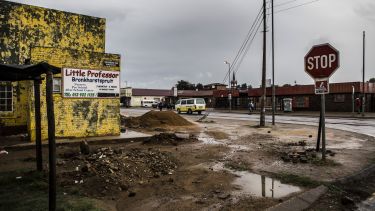About the project

Context
Ethiopia and South Africa’s youth experience high unemployment and lack affordable housing. Ethiopia recently invested in Africa’s largest industrial complex in Hawassa, yet low wages and scarce housing prohibits sustainable futures for young workers.
Labour turnover is very high. Young people are often well educated, but can’t secure employment.
In contrast, in South Africa, wavering historic investment in Ekandustria in Bronkhorstspruit, a former industrial decentralisation site, means high youth unemployment. Successful provision of state housing means some youth are housed, but cannot afford living costs.
Faced with this wicked problem youth respond creatively to manage these near-impossible fluid conditions. The relationship between youth, work and housing is under-theorised, particularly in terms of youth and state/private sector’s responses.
Focus
Focusing on these two cases of state intervention, this study examines the youth work/housing nexus, asking:
- how this nexus is experienced
- what are the key challenges
- what are the responses of youth and state/private sector actors
- what are the implications for youth futures and urban sustainability.
Action
Working collaboratively, the project has recruited 28 youth representatives from the city of Hawassa in Ethiopia and the greater Ekangala area in South Africa.
The youth representatives have engaged with the project team to share their experiences and insights.
We’ve provided training in survey design and delivery, and the youth have worked together to formulate key survey questions that reflect the priorities in their lives. They’ve learned about ethics processes in research and how to capture data, and have each gone on to complete 20 surveys of other young people in their neighbourhoods.
We’ve conducted life history interviews with each youth representative and then worked as a project team to analyse across all these interviews to best understand young people’s work/housing challenges.
The youth representatives helped identify key stakeholders in their local areas, members of government, social workers, teachers and community leadership who mattered to them.
We interviewed a range of these people to understand wider issues shaping young peoples’ work/housing experiences.
The youth representatives have also received media training and have been given the opportunity to produce one media output in the form of podcasts, videos, songs, poetry or a piece of writing.
